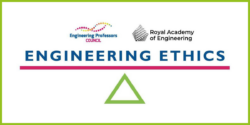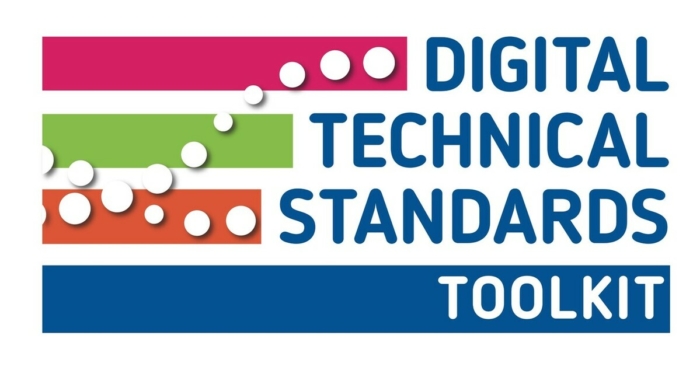 Author: James E. Harper, Senior Product Manager (Knovel /Elsevier).
Author: James E. Harper, Senior Product Manager (Knovel /Elsevier).
Keywords: Information literacy; digital literacy; misleading information; source and data reliability; ethical behaviour; sustainability.
Who is this article for?: This article should be read by educators at all levels in higher education who wish to integrate technical information literacy into the engineering and design curriculum or module design. It will also help to provide students, particularly those embarking on Bachelor’s or Master’s research projects, with the integrated skill sets that employers are looking for, in particular, the ability to critically evaluate information.
Introduction:
In an era dominated by digital information, engineering educators face the critical challenge of preparing students not just in technical skills, but in navigating the complex digital landscape with an ethical compass. This article explores how integrating information and digital literacy into engineering education is not only essential for fostering ethical behaviour but also crucial for ensuring sustainability in engineering practices.
The intertwined nature of information and digital literacy in engineering is undeniable. Engineering practitioners need to be able to select and critically assess the reliability of the information sources they use to ensure they comply with ethical practice. The Engineering Council and Royal Academy of Engineering’s Joint Statement of Ethical Principles underscores the need for accuracy and rigour, a core component of these literacies. Faculty members play a pivotal role in cultivating these skills, empowering students and practitioners to responsibly source and utilise information.
The challenge of information overload:
One of the challenges facing trained engineers, engineering faculty and students alike is that of accessing, critically evaluating, and using accurate and reliable information.
A professional engineer needs to gather insights and information to solve problems, deliver projects, and drive innovation. This involves undertaking as much research as possible: looking at case-studies, standards, best practices, and examples that will support or disprove what they think is the best approach. In a profession where the analysis of failures is a core competence, critical, dispassionate thinking is vital. In fact, to be digitally literate, an ethically responsible engineer must know how to access, evaluate, utilise, manage, analyse, create, and interact using digital resources (Martin, 2008).
Students, while adept at online searching, often struggle with assessing the credibility of sources, particularly information gleaned on social media, especially in their early academic years. This scenario necessitates faculty guidance in discerning reputable and ethical information sources, thereby embedding an ethical approach to information use early in their professional development.
Accuracy and rigour:
Acquisition of ‘information literacy’ contributes to compliance with the Statement of Ethical Principles in several ways. It promotes the ‘accuracy and rigour’ essential to engineering. It guarantees the basis and scope of engineering expertise and reliability so that engineers effectively contribute to the well-being of society and its safety and understand the limits of their expertise. It also contributes to promoting ‘respect for the environment and public good’, not just by ensuring safety in design, drawing up safety standards and complying with them, but also by integrating the concept of social responsibility and sustainability into all projects and work practices. In addition, developing students’ capacity to analyse and assess the accuracy and reliability of environmental data enables them to recognise and avoid ‘green-washing’, a growing concern for many of them.
Employability:
In the workplace, the ability to efficiently seek out relevant information is invaluable. In a project-based, problem-solving learning environment students are often confronted with the dilemma of how to refine their search to look for the right level of information from the very beginning of an experiment or research project. By acquiring this ‘information literacy’ competence early on in their studies they find themselves equipped with skills that are ‘workplace-ready’. For employers this represents a valuable competence and for students it constitutes an asset for their future employability.
Tapping into specialised platforms:
In 2006 the then-CEO of Google, Eric Schmidt famously said “Google is not a truth machine”, and the recent wave of AI-powered chatbots all come with a stark disclaimer that they “may display incorrect or harmful information”, and “can make mistakes. Consider checking important information.” Confronted with information overload and the difficulty of sifting through non-specialised and potentially unreliable material provided by major search engines, students and educators need to be aware of the wealth of reliable resources available on specialised platforms. For example, Elsevier’s engineering-focused, purpose-built platform, Knovel, offers trustworthy, curated engineering content from a large variety of providers. By giving students access to the same engineering resources and tools as professionals in the field it enables them to incorporate technical information into their work and provides them with early exposure to the industry standard. For educators, it offers support for the foundational years of teaching, covering all aspects of problem-based learning and beyond. It is also an efficient way of remaining up-to-date with the latest information and data on key issues. The extensive range of information and data available equips students and engineers with the ability to form well-rounded, critical perspectives on the various interests and power dynamics that play a role in the technical engineering challenges they endeavour to address.
Conclusion:
By embedding information and digital literacy into the fabric of engineering education (such as by using this case study), we not only promote ethical behaviour but also prepare students for the challenges of modern engineering practice. These skills are fundamental to the ethical and sustainable advancement of the engineering profession.
Knovel for Higher Education is an Elsevier product. As a publisher-neutral platform, Knovel helps engineering students explore foundational literature with interactive tools and data.
46% of EPC members already have access to Knovel. If you don’t currently have access but would like to try Knovel in your teaching or to brainstorm how you can make the best use of Knovel in your classroom, please contact: Susan Watson, susan.watson@elsevier.com. Check out this useful blog post from James Harper on exactly that topic here.
Faculty and students can check their access to Knovel using their university email address at the following link: Account Verification – Knovel
References:
- Martin, A. (2008). Digital Literacy and the “Digital Society”. In C. Lankshear, & M. Knobel (Eds.), Digital Literacies: Concepts, Policies, and Practices (pp. 151-176). New York: Peter Lang.
Additional Resources:
- Engineering Ethics Toolkit: Case study on critical digital literacy and misinformation
- Blog: How Knovel can support information literacy
- Knovel | Engineering knowledge, tools and materials data | Elsevier:
- A Game-based Learning Approach to Information Literacy – Knovel Global Academic Challenge
- Faculty and students can check their access to Knovel using their university email address at the following link: Account Verification – Knovel
- Knovel: Engineering innovation in record time
- Engineering content for study and research on Knovel
- Knovel: Engineering Ethics
- Elsevier: Support engineering scholarship
This work is licensed under a Creative Commons Attribution-ShareAlike 4.0 International License.
Any views, thoughts, and opinions expressed herein are solely that of the author(s) and do not necessarily reflect the views, opinions, policies, or position of the Engineering Professors’ Council or the Toolkit sponsors and supporters.




